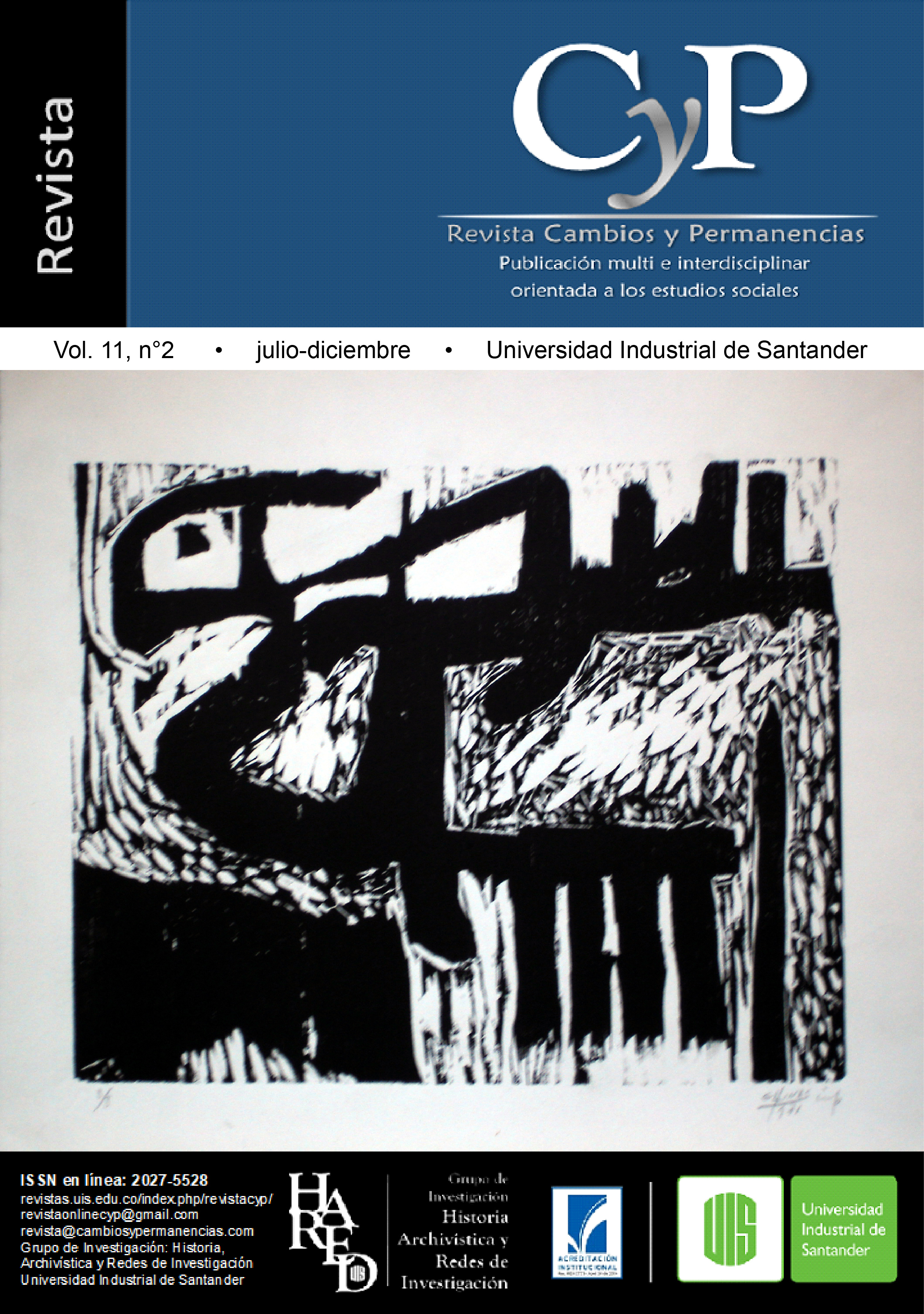Published 2020-12-14
Keywords
- minor literature,
- queer,
- becoming,
- monster,
- desubjectivation
How to Cite
Abstract
He present paper seeks to propose correlational elements that show the importance of thinking about the constitution of the becoming of a monster in a queer population of Colombia, to make visible its transits through immanence, its vital trajectories, its creative resistances and how it draws lines of escape that lead to deep mutations and processes of disidentification of captured, organized and signified bodies through hetero-patriarchal and hetero-normality modes of subjectivation. Likewise, it is intended to explore the meaning inscribed in the political struggles and the machinic arrangements of this social group that, from marginality, claims for the difference and the configured existences, beyond the majority and binary molds.
To this end, the text is organized into two analytical blocks, the first one: Thinking the monster-thinking the cure, makes a reflexive exercise between the positions of Deleuze and Guattari in front of the minor literature or a minor ontology, as a field of investigation for the forms of composition and development in the becoming, and the lines of escape that allow escaping to those of traditional analysis of the identity forms, together with the methodological bet for the deployment of the investigation. The second block problematizes the study of the queer, based on ontological and epistemic analysis as opposed to the theoretical proposal outlined throughout the text.
Downloads
References
Blanco, J. (1981). Función de media noche: Ensayos de literatura cotidiana. México: Ediciones Era.
Deleuze, G., y Guattari, F. (1975). Kafka por una literatura menor. México: Ediciones Era.
Deleuze, G., y Guattari, F. (1985). El anti-Edipo, capitalismo y esquizofrenia. España: Editorial Paidos.
Deleuze, G., y Guattari, F. (1994) Mil Mesetas. Valencia, España: Pretextos.
Epps, B. (2008). Retos, riesgos, pautas y promesas de la teoría queer. Revista Iberoamericana, Vol. LXXIV(225), 897-920.
Lopez, S. (2008). El laberinto queer. Madrid, España: Editorial Egales.
Moraña, M (2017). El monstruo como máquina de guerra. España: Editorial Iberoamericana-Vervuert.
Núñez, A. (2009). La ontología de Gilles Deleuze: de la política a la estética (Tesis doctoral). Universidad Nacional de Educación a Distancia UNED, España.
Perlongher, N. (1997). Prosa plebeya: ensayos 1980-1992. Buenos Aires, Argentina: Editorial Colihue.
Piedrahita, C. (2015). Subjetivaciones política y pensamiento de la diferencia. Bogotá, Colombia: Universidad Distrital Francisco José de Caldas, Consejo Latinoamericano de Ciencias Sociales CLACSO.
Preciado, B. (2002). Manifiesto contrasexual. Madrid, España: Opera Prima.
Steiner, A., y Plummer, K. (1996). I can't Even Think Straight. In Queer Theory/ Sociology. Cambridge, England: Blackwell Publishers.

